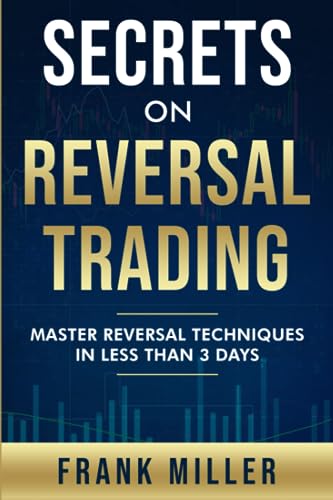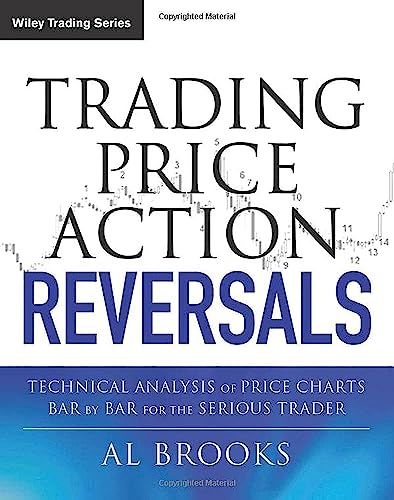- Miller, Frank (Author)
- English (Publication Language)
- 92 Pages - 11/01/2020 (Publication Date) - Independently published (Publisher)
Introduction
Reversal trading is a powerful strategy that can unlock significant profit potential in the financial markets. This approach involves identifying key reversal points in price trends and taking advantage of the subsequent price movements. In this article, we will explore the concept of reversal trading and how it can help traders maximize their profits.
Understanding Reversal Trading
Reversal trading is based on the idea that price trends tend to reverse or change direction at certain levels. These levels can be identified through technical analysis tools such as support and resistance levels, trendlines, or candlestick patterns. By recognizing these reversal points, traders can enter trades with the expectation that the price will reverse and move in their favor.
The Benefits of Reversal Trading
Reversal trading offers several advantages for traders looking to maximize their profit potential. Firstly, it allows traders to catch major price reversals, which can result in substantial gains. By entering trades at the early stages of a reversal, traders can ride the new trend and capture significant profits.
Secondly, reversal trading provides traders with a favorable risk-reward ratio. Since traders enter trades at reversal points, they can place their stop-loss orders relatively close to their entry points. This allows for tighter risk management and the potential for larger profits compared to other trading strategies.
Key Techniques for Reversal Trading
To effectively implement reversal trading, traders should utilize a combination of technical indicators and price patterns. Some popular techniques include:
1. Support and Resistance Levels: Identifying key support and resistance levels can help traders pinpoint potential reversal points.
2. Candlestick Patterns: Certain candlestick patterns, such as doji, hammer, or engulfing patterns, can indicate potential reversals.
3. Trendline Breaks: When a price trendline is broken, it can signal a potential reversal in the opposite direction.
4. Divergence: Divergence occurs when the price and an oscillator indicator move in opposite directions, indicating a potential reversal.
Conclusion
Reversal trading is a powerful strategy that can unlock significant profit potential for traders. By identifying key reversal points and entering trades at the early stages of a new trend, traders can maximize their profits while effectively managing their risks. Utilizing technical indicators and price patterns can enhance the accuracy of reversal trading. Remember to always conduct thorough analysis and practice proper risk management when implementing this strategy. Happy trading!
- Miller, Frank (Author)
- English (Publication Language)
- 92 Pages - 11/01/2020 (Publication Date) - Independently published (Publisher)
- Hardcover Book
- Brooks, Al (Author)
- English (Publication Language)
- 576 Pages - 01/24/2012 (Publication Date) - Wiley (Publisher)
- Turner, Robert (Author)
- English (Publication Language)
- 83 Pages - 06/18/2023 (Publication Date) - Independently published (Publisher)
- Teally, Robb (Author)
- English (Publication Language)
- 142 Pages - 08/06/2024 (Publication Date) - Independently published (Publisher)
Last Updated on September 26, 2023 by ingmin




